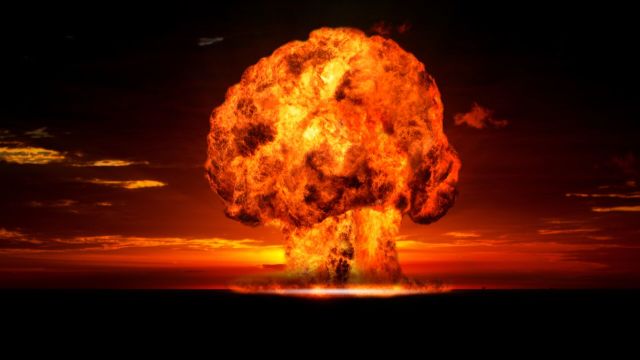RVIO: Russia's nuclear tests may be a response to the West's desire to defeat it
MOSCOW, Aug 5 – RIA Novosti. The 1963 Moscow Treaty banning nuclear weapons tests opened the way to disarmament and the removal of tension between the great powers, but today all this progress is offset by the desire of the West to inflict a strategic defeat on the Russian Federation, which gives it the right to resume such tests, Mikhail Myagkov, scientific director of the Russian Military Historical Society (RVIO), told RIA Novosti.
Exactly 60 years ago, on August 5, 1963, the USSR, the United States and Great Britain signed in Moscow a treaty banning nuclear weapons tests in the atmosphere, outer space and under water. To date, 131 States have joined it.
Speaking before the Federal Assembly in February 2023, Russian President Vladimir Putin said that Russia has information that the United States is thinking about the possibility of full-scale tests of its nuclear weapons, including taking into account the development of new types of American nuclear weapons. In this regard, the Russian leader instructed the Russian Defense Ministry and Rosatom to ensure readiness for testing Russian nuclear weapons if the Americans conduct the tests first.
"The Moscow Treaty of 1963 was the first step that allowed the start of negotiations on the reduction of nuclear weapons. Today, everything has changed - after the start of ITS NATO countries declared that they wanted to inflict a "strategic defeat" on Russia. It turns out that Washington openly dreams of our defeat, withdraws from all disarmament treaties, supplies our enemy with military equipment and at the same time wants to conduct inspections at our nuclear facilities, while not letting us into its facilities – this is just a theater of absurdity!" said Myagkov.
The interlocutor of the agency noted that if Moscow decides to conduct nuclear tests, it will be about underground explosions, which are not prohibited by the Moscow Treaty. At the same time, the historian recalled that the United States itself has not ratified the Comprehensive Nuclear-Test-Ban Treaty (CTBT) of 1996, which also prohibits underground testing.
Myagkov noted that all components of the nuclear triad must be kept "ready", since today the enemy does not abandon plans to at least partially reduce the Russian nuclear potential.
Historical background
Speaking about the historical context of the signing of the Moscow Treaty, the Scientific director of the RVIO noted that it became possible because by the early 1960s the United States realized that the Soviet Union was not a "whipping boy" in the nuclear sphere. A wake-up call for Washington was the Caribbean crisis that occurred earlier in 1962, when US policy brought the world to the brink of nuclear war.
Another strong argument was the damage that such tests caused to the ecology of the Earth. "When the Americans detonated their atomic bomb on Bikini Atoll, nuclear fallout fell thousands of miles away and deadly ash fell, including on Japanese fishermen, which became a very strong symbolic analogy with the US strike on Hiroshima and Nagasaki. The world community was very concerned about this development," he said.
Potential risks
Speaking about the risks that the resumption of nuclear tests may entail, Myagkov noted that underground explosions continued until the signing of the CTBT in 1996, which did not interfere with the disarmament process in any way – in 1991, the USSR and the United States signed the Strategic Offensive Arms Reduction Treaty (START-1), and in 1993 – START-2.
According to the historian, then the United States showed common sense, realizing that the parties had reached nuclear parity: "Therefore, I do not think that even now the very fact that we are conducting such tests will lead to an escalation of tension in an already tense situation."
At the same time, Myagkov stressed that even if Russia ever takes such a step, it will have to do it as a response to aggressive actions by the West.
"Of course, we can take such a step not from a good life, we are forced by the collective West, whose combined nuclear potential is greater than the Russian one. We must defend ourselves as best we can in the current situation – we are going exclusively to retaliatory steps," the agency interlocutor concluded.

